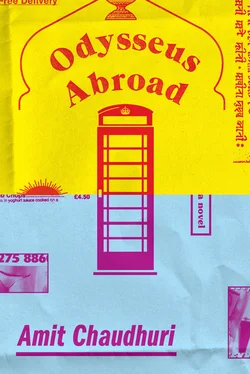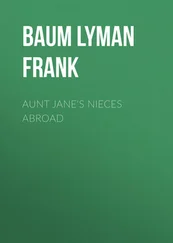“Also, that first flush — when Chhorda saw the world in a peculiar vibrant glow, in a colour close to purple — that faded. He told me he could never see that vivid colour after seventeen. Then he stopped writing poems.” And became a minor addition to the Assam Civil Service.
—
They paused before the Screen on the Hill. There was nothing to draw them immediately. Mostly the Screen on the Hill catered to the delicate art-house audience that lived in this environment. Contrary, lonely English people who were at once deeply, visibly English and gently Francophile. Hardly any of the movies that he and his uncle liked to watch together — James Bond played by Sean Connery. Tonight at 7 p.m. it was Discreet Charm of the Bourgeoisie .
—
Ananda’s uncle’s older brother’s poem. From Desh . He’d recited it during one of their strolls round the area, as if it were a canonical event, something that had subtly changed the world — at least his world. It was a strange poem for a sixteen-year-old to write — neither idealistic nor excessively emotional, but one that quietly observed a small but decisive transition in the young poet’s life. At first, Ananda thought it was addressed, as is the norm, to a woman — perhaps real, but probably imaginary. Then he heard from his uncle that these were lines written by his brother to their late father. Like “Surprised by Joy,” which records the realisation, in the midst of the poet’s natural elation, of the fact of his dead daughter’s absence, his uncle’s poem — the uncle who lived in Shillong — acknowledged the memory (breaking the day’s everyday, forgetful rhythm) that his father was gone; yet not quite gone. Written years ago. What did it mean to grow up without a father? Ananda knew that his grandfather was an engineer, and that his death in the riding accident had left his wife and children struggling. They’d never recovered. Ananda’s mother had been two when her father died; Rangamama three and a half. He’d maybe taken it worse than the others — it gave him an exaggerated sense of what he might have been. The older siblings had rallied, but for a while dabbled in the planchette to establish their father’s whereabouts. Then they’d set aside that nonsense in favour of marrying and having children, for the relief of letting their own childhood go.
—
“I wasn’t cut out for writing poems. Didn’t have the time for that kind of thing,” said his uncle with manly pride. “I had to be there — have to be there — for my family. I chose that role for myself.”
The black sheep, ordered to run errands. Used-car salesman. Now living in the cave in 24 Belsize Park, issuing cheques to a list of petitioners — close as well as obscure relations (relations’ relations) whom Ananda had never heard of — in corners of Bengal and Assam. The solitary, faraway pillar of a family scattered and dispersed: that’s how his uncle saw himself.
They were near the Belsize Bookshop. Its half-forgotten cocoon always a temptation to encroach on. To his uncle he said:
“You don’t have to write poems. There are people who make their life a poetic work. You may be one of them.”
Rangamama didn’t so much accompany his nephew as skulk slightly behind. Sometimes, when they were shoulder to shoulder, they collided sideways. His uncle nodded. He seemed intrigued. Certainly, the analysis was in tune with his own self-mythologising. (Having absorbed Ananda’s words, he would probably quote them back to him three days later, imagining he’d thought them up himself.) Once, in the course of a heated dialogue in which his uncle’s greatness was clearly not being adequately addressed, he’d snapped: “Do you realise I’m God?” Instead of pointing him to a psychiatrist, Ananda had controlled himself and replied that maybe all men, in some capacity, were God, and they’d both had the good sense to leave it at that. Another time, when they were discussing Ananda’s father’s many attractive qualities, his composure and general sanity, his uncle had said competitively: “There are many planes of existence. The people on the lower don’t see the ones on the higher. For example, there are beings around us now we can’t see. Your father can’t really see me. I’m on a different plane — invisible to him, like a ghost.” Ananda had forgotten to throttle him because he was mesmerised. Another time: “Do you know Jagannath?” The Lord of the Universe; yes, of course. “Do you know why he’s so ugly?” The likenesses of Jagannath were aboriginal, autochthonic: two stumps for arms; orbs for eyes — owl-like. “As Jagannath created the universe, he gave more and more of himself, denuding his form — until he became what you see today: incredibly ugly; a misshapen stub.” Narrated with melodramatic quietude. When he searched for this version of the myth in books, he found it nowhere — till he concluded it was his uncle’s invention, an allegorical account of himself. In this story, he saw himself giving and giving to a family that no longer cared for how he lived, that sucked him dry as he continued indefinitely in 24 Belsize Park, leaving him in the physical state he was now in: in the old three-piece suit, the incisor missing, the broad and full (and vibrant, Ananda thought) nose somehow highlighted by the hair cropped to pinpricks by the barber.
—
“Hello.”
“Hello.”
Inside the Belsize Bookshop. The general air — as they entered — was not quite what greeted Ananda when he sneaked into one of the porn shops near Wardour Street: studied indifference. Here, the eye-contact was normal, unhesitating. The man seemed vaguely charmed by Ananda’s uncle — and why not, given the broad toothless smile he’d thrown him as they walked in?
On the table with other new arrivals was, displayed frontally, Geoffrey Hill’s Collected Poems , a paperback, with the lapidary KING PENGUIN on the top. Strange picture on the jacket, bright but oddly forbidding, of what looked like an angel wrestling with a man. Ananda turned the book over and noted the painting was by Gauguin — obviously not one of his Tahiti scenes. Nestor Davidson admired Hill — could he be slightly in awe of him, like the rest? No, Mr. Davidson wasn’t one to submit in that way; but he’d recommended even the later, difficult poems. Strange creature, Hill. Was he more English or European? Antique or contemporary? Ananda opened the book gingerly, read with pleasure the first dour line of biography on the first page: “…son of a police constable.” The epic begins in the ordinary; “There is no bloodless myth will hold,” Hill himself had sternly written. Ananda had read and been drawn to the early poetry; he turned page after page of stately verse, jealously compressed, and full of icy hauteur, till he lighted on “Ovid in the Reich.” It was tiny; he knew it. He’d first noticed it in an anthology. He read it now in one gulp, then slowly reread the second, final, perplexing stanza:
I have learned one thing: not to look down
So much upon the damned. They, in their sphere ,
Harmonize strangely with the divine
Love. I, in mine, celebrate the love-choir .
A customer rustled by. “Excuse me,” said Ananda, moving to his right. You were often blocking people’s paths in this country. You were meant to. If you hadn’t come between someone and their destination at least once in the day, you must find a means of doing so. Slowing others down — as with a car stationary at a zebra crossing — affirmed sociableness. He returned to the page. Was this Ovid speaking in the poem? He’d been banished, hadn’t he, for an obscure misdemeanour? By some Emperor? Was it Augustus? No, it couldn’t be — Augustus was the guy after whom August was named. Would Ovid have been able to be so equanimous about the Nazis? Perhaps, in Tomis, on his sequestered estate, he wouldn’t have heard too much about Auschwitz, except as rumour. Who were the “damned” here? (Hindu theology had no concept of damnation — this could be why Ananda was fascinated by it.) Were they the wretched in the concentration camps? Or the functionaries and commanders who directed their fate? If the latter, then it was probably okay to make that ironical, faux mystical remark about them “harmonizing strangely” with “the divine love.” But if it was the former, then wasn’t such a statement inadmissible, even revolting? He reconsidered the lines. For some reason, he found he’d been reading them each time as “I have learned one thing: not to look down / Too much upon the damned”; rather than “so much,” as in the poem. He’d grown attached to the misreading. He smiled. It brought to the voice a senatorial wryness, the private sense of humour of a marginalised man. “So much” gave Ovid an aloofness he couldn’t possibly have had any more in Tomis.
Читать дальше











